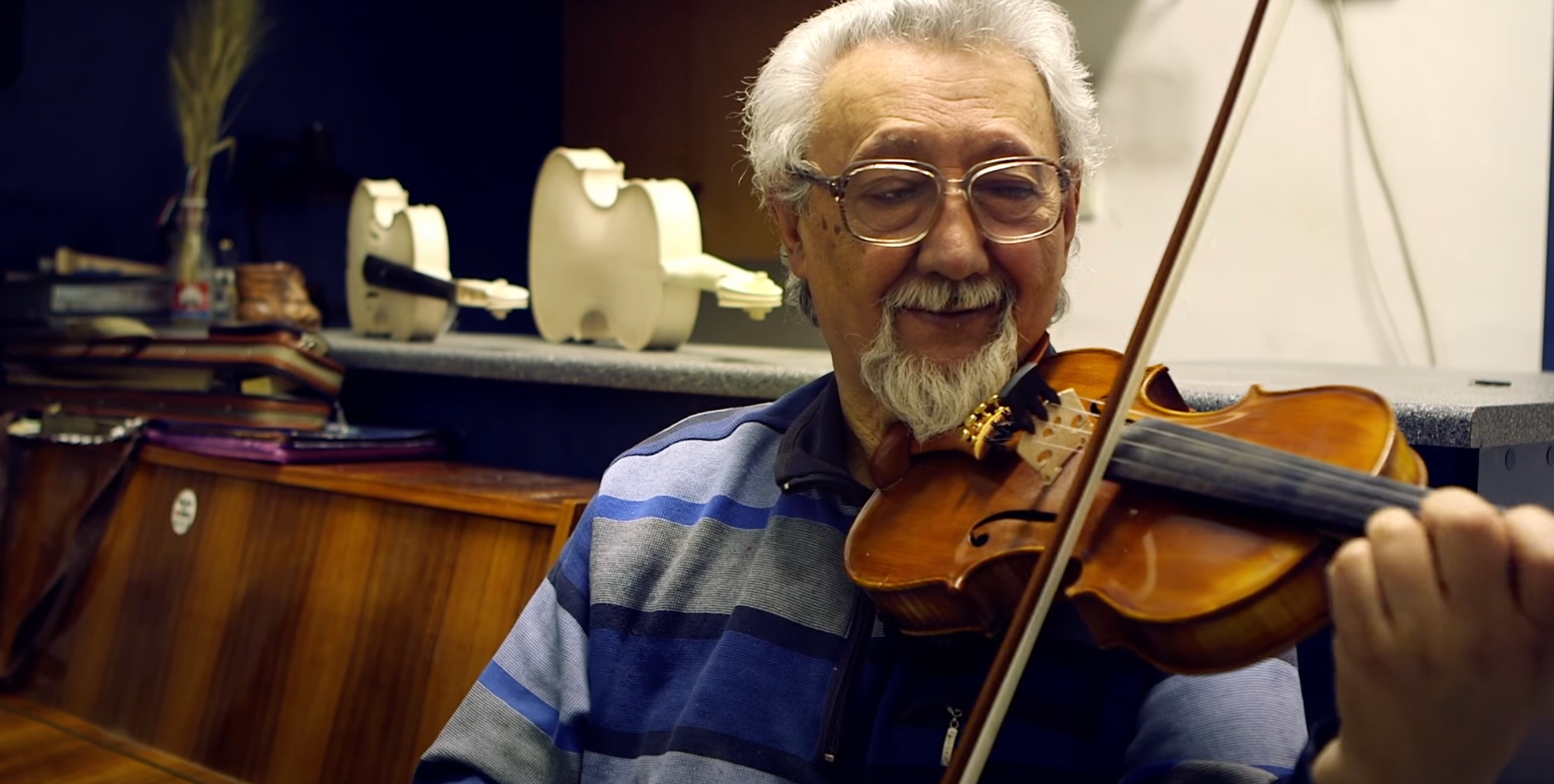After enduring centuries of stereotypes and other false depictions, Roma artists are working together to help their people tell their own story about their history, their art and their contributions to European culture.
During my studies in art history at the Eötvös Loránd University in Budapest, I immersed myself in the history of European art. I must have analyzed literally hundreds of pieces, yet I cannot recall a single time when artwork created by my people, the Roma, was discussed in my classes or included in my readings.
I realized that if I wanted to learn more about the contributions the Roma people have made to European culture, I would have to push beyond the classical curricula and do the research for myself. And while much about Europe has changed in the years since I was student, when it comes to the recognition of Roma artists, this regrettable situation has not.
Out of the more than 10,000 works by Roma artists currently kept by European state collections and cultural institutions, for example, only two are permanently featured in state-run exhibits. This reality not only deprives people of every stripe the opportunity to enjoy these important works of art, but also contributes to the marginalization and degradation of Roma people.
In those few cases where the Roma are visible in the media, unfortunately, they are overwhelmingly depicted through harmful, racist stereotypes. Instead of being shown as the thinkers, writers, performers, and artists that they are, Roma are presented as folkloric musicians, beggars, and thieves. This image of the Roma is simply false—and it must change.
That is why, starting on June 8 in Berlin, we are launching the European Roma Institute for Arts and Culture. Finally, Roma people will have their own permanent space to celebrate their history, engage with others, and create art. The institute will be a space where Roma can avoid the mainstream’s prejudices, and explain for themselves who they are and what they believe.
The European Roma Institute for Arts and Culture is the result of over four decades of consistent and passionate activism for the recognition of Roma culture. The institute was a common vision of many Roma organizations, intellectuals, artists, and supporters of Roma arts and culture. With its establishment, Europe celebrates a transformative, resilient, and creative Roma identity—a real shift from a paternalistic approach to Roma culture to one characterized by Roma self-representation and self-determination.
During a time when chauvinism and anti-Roma prejudice is on the rise—and when state funding is increasingly denied to projects that don’t toe the nationalist line—it is crucial that minority arts and culture have a place of their own. And it is entirely fitting for the institute to be hosted in Berlin, one of the most culturally vibrant cities in all of Europe.
Ultimately, however, the institute’s reach will extend far beyond Berlin. Because the goal is to build a place of communion and cultural recognition for all European Roma, so future generations and regular citizens no longer have to conduct their own searches to find the Roma people’s artistic and cultural legacy, which continues to shape Europe to this day.
By Timea Junghaus
The European Roma Institute for Arts and Culture was cofounded by the Alliance for the European Roma Institute for Arts and Culture, the Open Society Foundations, and the Council of Europe.
This article was originally published on opensocietyfoundations.org.

Timea Junghaus
Executive Director, European Roma Institute for Arts and Culture
The latest

Serbia Must Amend Missing Persons Alert System to Protect Vulnerable Adults

Constitutional Review of the Šutar Law Confirms Serious Rule-of-Law Concerns

Europe’s Growth Depends on Roma Talent
Browse by category
Campaigns
Events
Facts
Press
Voices
For media inquiries:
[email protected]Sign up here so you don’t miss out on campaign updates, upcoming events and other news from the Roma Foundation for Europe and our network.
Sign up for our newsletter